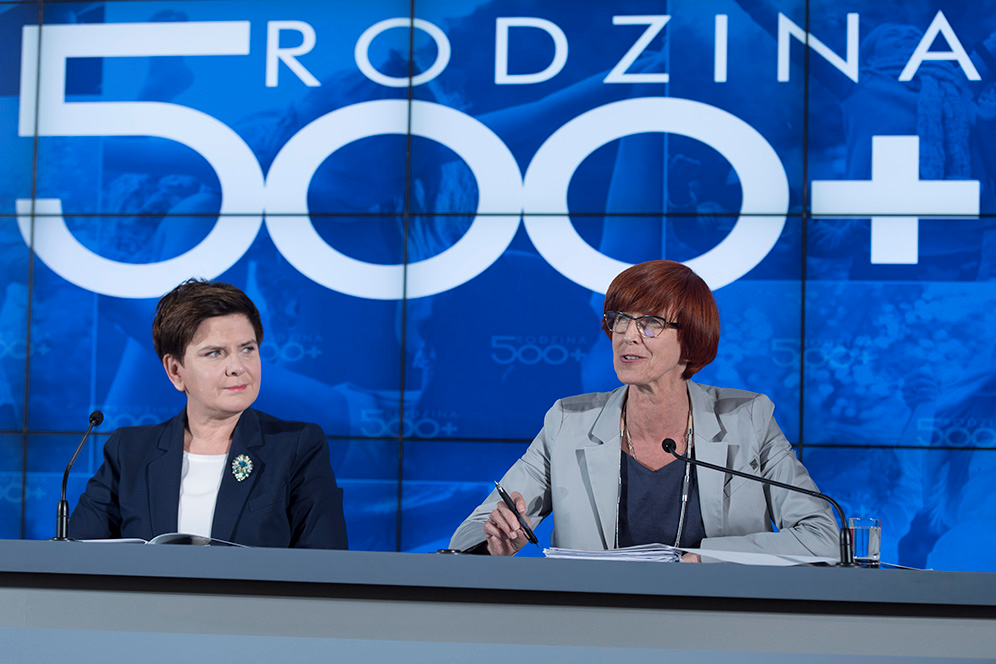By Julia Benbenek
Poland’s economic success throughout the past years has earned it the sixth largest economy in the EU (European Union). Driven by a large domestic demand, the Polish economy has attained record low unemployment rates as well as robust gains in consumption and investment. From 2013 to 2017, the unemployment rate dropped from 13.4% to 6.6% while the GDP per capita (EUR) rose from 10,375 to 12,263. On September 24th of 2018, Poland was officially reclassified from emerging market to developed market status by leading index provider FTSE Russell.
The key industries that have facilitated economic growth are manufacturing and mining. Poland is the second largest coal producer in Europe and ninth largest in the world. As the domestic demand for power has risen steadily throughout the past couple of years, coal production has significantly expanded. This has been accompanied by an expansion of the manufacturing industry as well; Poland has become a large exporter of machinery, furniture, plastics, and electronic equipments.
However, the development of the Polish economy traces back to the 1990’s. Following the collapse of communism and the victory of the Solidarity movement in the free elections of 1989, Poland pursued a policy of economic liberalization. This policy was adopted through what has been termed as “shock therapy”. Shock therapy is the process of rapidly implementing economic reforms entailing price and trade liberalization, privatization of state-owned enterprises, and drastically decreasing the role of the state in the economy.

Solidarity demonstration in Warsaw, Poland.
(Source: https://commons.wikimedia.org/wiki/File:Solidarity_1984_August_31.png)
Economic liberalization laid the foundation for the establishment of a free-market economy. Shock therapy allowed for the creation of capital markets, stock exchange, and a convertible currency while eliminating subsidies and price controls. These new liberal laws greatly facilitated the expansion of the private business sector as the establishment of new firms was encouraged.
In May of 2004, Poland joined the EU. This was a critical step for removing trade barriers and integrating the Polish economy with Western Europe. As a member of the EU, Poland has also greatly benefited from EU structural funds. In the EU’s 2007-2012 budget, Poland was allocated €67 billion which allowed the government to invest in infrastructural development. Additionally, Polish farmers have benefited from EU subsidies, and it has opened the door to greater labor mobility. Millions of Poles have emigrated to Ireland and England, alleviating Poland’s unemployment burden.
The current Polish administration has also played an important role in strengthening the economy. According to the Prime Minister Mateusz Morawiecki, the Law and Justice (PiS) party has, “cracked down on rampant tax fraud and evasion.” Through stricter enforcement and greater technological involvement, the administration has managed to significantly reduce the gap between expected and actually collected tax revenue. The VAT (value-added-tax) is the most important source of public revenue in Poland; after PiS cracked down on the evasion of VAT, it succeeded in raising receipt by 23%.
PiS has also placed a great emphasis on welfare. It has acknowledged the importance of tackling socioeconomic inequality through the implementation of the 500+ program. This program provides unconditional cash payments to parents of low-income families. For each child under the age of 18, parents receive PLN 500 a month. Currently, parents are provided welfare payments for over 3.6 million children. The 500+ program has been critical for boosting birth-rates, promoting consumption, and reducing child poverty.

Beata Szydło and Elżbieta Rafalska promoting the 500+ program.
(Source: https://pl.wikipedia.org/wiki/Rodzina_500_plus)
However, Poland’s neighbors have not experienced the same economic fortune. To the north, Lithuania has suffered from lower crop yields due to droughts which has weakened the agricultural sector. Additionally, it has encountered a shortage of skilled labor due to a steady outflow of young and highly educated people which causes a brain drain. Its GDP sits at around €34.95 billion which is approximately 1/10 of Poland’s economy.
To the south, the Czech Republic is reaching a two-year low of economic growth. Over the past couple of years, the Czech economy has faced great fluctuations. From 2015 to 2016, the annual variation of investment dropped from 10.4% to -2.5% along with consumption, industrial production, and exports. Meanwhile, inflation and debt have grown.
To the east, Ukraine has experienced record low economic growth rates recently. In 2015, it declined to -9.8%. Additionally, the agricultural sector has not performed well, and merchandise exports have also reached a two year low. Furthermore, on November 25th, Kremlin seized three Ukrainian military vessels which caused a major escalation in Kremlin-Ukraine tensions.
The poor economic performance of surrounding countries has evoked concerns about whether Poland’s economic success is sustainable; however prospects appear positive. Many have raised questions regarding the potential negative economic effects of Brexit. Although, Brexit will likely result in the imposition of tariffs on trade which will decrease the dynamic of Polish exports to the UK, this effect on the GDP growth rate of Poland will likely be negligible.
Additionally, multiple public figures have expressed optimism for the future of the Polish economy. Prime Minister Mateusz Morawiecki stated that the Polish economy was growing, “in a sustainable manner.” Polish Finance Minister Teresa Czerwińska also indicated high expectations for the year, stating that the general deficit will drop to a record low of .3% of the GDP, the structural deficit will fall to 1.25% of the GDP, and the debt-GDP ratio will decline to less than 50%. IMF’s Rachel van Elkan affirmed Polish officials’ economic projections, expressing that she foresees the shrinking of government deficit and debt. Although, she anticipates GDP growth to slow throughout the next couple of years, she expects steady economic growth, nonetheless.
Do you want to know more about this issue or explore further? Are you interested in funding PAC’s advocacy effort? Join the cause with PAC by clicking
 Julia Benbenek is an intern at the Polish American Congress and an undergraduate student at Georgetown University pursuing a Bachelor of Science in Foreign Service.
Julia Benbenek is an intern at the Polish American Congress and an undergraduate student at Georgetown University pursuing a Bachelor of Science in Foreign Service.
